Featured Articles
In the Waiting
Published
1 year agoon

By Gary Khan
When I was in my early twenties, God gave me a word and a picture regarding His destiny for me. It was overwhelming and compelling, and I have spent the rest of my life waiting for Him to fulfill that vision. Yet it eludes me. Time is creeping forward, and I seem to be standing still, wondering when I will see the fulfillment of that promise from God.
Have you ever felt that way? God drops a word into your heart, a promise for the future, and then He goes silent and seems to have forgotten about what He said. For me it has resulted in doubt storms that rage within me. That doubt sometimes leads to rash decisions when I decide to “help” God fulfill His promise by forging ahead of Him.
Abraham had a similar experience. God spoke to him about his descendants being as numerous as the sands of the seashore when Abraham had yet to father even one child. After God gave him that word, decades passed with no fulfillment in sight. Abraham had to live in the waiting, and in that time of waiting he did some things we would be wise to avoid. The story can be found in Genesis 15 and 16.
Abraham Doubted
Abraham made some major moves, literally, as a result of God speaking to him, moves that seemed to lack any immediate payoff.
Let’s put ourselves in that situation for a moment. God speaks to us regarding a major life change; then He goes silent. How many of us would obey Him right away? Or would we walk around wrestling with doubts about whether we really heard from God? How many of us are not doing the majority of what He has asked us to do right now because we are doubtful about the outcome?
I can hear it already. Some of you are thinking, But Abraham is different. He had God show up in person so he should not have doubted. I do not get personal visitations from God.
Maybe we won’t get a personal visitation like Abraham did, but today we have God’s Holy Spirit. He lives in us and is with us, leading us and guiding us into all truth. Conversely, imagine you did receive a visitation from God for a moment, but then you had to walk day in and day out in the reality that what God told you would happen has not happened – even though it has been years of waiting and various attempts at fulfilling His promise. In those “day-in and day-out” moments, doubts begin to visit, making statements that throw God’s promises into question.
Did I really hear God, or was it the pizza I ate that evening?
Really, I know God can do anything, but would He do that for me? I’m not that special. Maybe I’m doing something wrong. Remember, “God helps those who help themselves,” so if I want to see this happen, then I need to make it happen.
We need to learn to anticipate those doubts. If you are like me, you want God to reassure you every moment until the promise is fulfilled, and then you want Him to continue to reassure you that everything is on track. We want constant reassurance — but God wants us to trust in Him. The need for constant reassurance does not build our faith in Him.
Dealing with Doubt in the Waiting
The enemy’s tried-and-true tactic is to cast doubt on what God said to us. It’s a trick as old as time. In Genesis he asked Eve, “Did God really say, ‘You must not eat from any tree in the garden’?” (Genesis 3:1, NIV).
We need to recognize this tactic and be prepared to deal with it. In the New Testament, James tells Christians that we can be victorious over Satan and his doubting trick: “Submit yourselves, then, to God. Resist the devil, and he will flee from you” (James 4:7, NIV).
Submit and resist. We submit by believing God’s Word, and we resist by standing on that Word in faith and declaring it over our lives. We resist when we live in the reality of what God has spoken instead of reacting to the doubts Satan is stirring up. We can win over doubt, and the way we win is by reminding ourselves and the enemy of God’s Word to us.
When Abraham and Sarah were plagued by the doubts that came up because of God’s silence, they would have done well to remind themselves what God had said to them. They would have saved themselves a lot of trouble and heartache. The same goes for us. The enemy is looking to steal, kill, and destroy the work of God in us, but God has promised that His Word will not return empty. How do we remind ourselves of God’s precious promises?
- Memorize His Word and repeat it as needed.
- Read it often and hold on to His promises. He will fulfill His Word to us.
The doubts will keep coming, one after another. The enemy’s incessance combined with the seeming slowness of God and His silence lead us to a crossroads where many of us act on our doubts instead of standing on God’s promises. That never ends well.
We will encounter these realities if we trust our plans over God’s:
- We can never see the big picture like God does.
God is not bound by time and space and sees how every little thing affects the big picture; we can never do that. When we choose to trust our plans instead of God’s plans, we take huge risks. We may be able to plan three steps ahead of us, but even that is fraught with trouble because we can never predict how a person may react to something we do, and we do not know what will happen in the bigger scheme of things.
- Our motivations become a problem.
When God plans, He is weaving together a masterpiece that will be for the good of all humankind. When we plan, we are usually concerned with ourselves and getting what we want. Just look at what happened with Abraham, Sarah, Hagar, and Ishmael.
Sarah was not concerned with God’s great plan of bringing salvation to the world through Abraham. Her motivation for a child was to unburden herself from the stigma of not being able to bear a child for her husband. When it seemed like God was taking too long, she decided on a plan to get that child through a surrogate. Hagar was her handmaiden, so she was with Sarah all the time. Hagar probably saw Sarah’s sadness and heard her as she sobbed and complained about how she could not have a child for her husband. I don’t know whose idea it was, whether Sarah suggested it or Hagar offered it, but however the idea was conceived, I can safely say that Sarah was not thinking about Hagar’s well-being. She simply saw her as a means to an end.
One of the problems that occurs when we doubt is that instead of trusting God’s timing, we run ahead and use people around us “in the name of God,” leaving a trail of destruction and brokenness behind us.
- People don’t always respond the way we expect them to or as they promised they would.
Hagar may have told Sarah she would do this as her friend and handmaiden. She may have had good intentions. As a kid hearing this story, I simply assumed that Hagar got pregnant after a one-night stand. But the reality is that Abraham probably went in to Hagar more than once, and when Hagar started having sexual relations with Abraham, things changed. It always does when you start having sex – because God made it that way.
When Hagar discovered she was pregnant, things changed even more. She began to believe that she would now mean more to Abraham and Sarah. But the sad reality is that in Abraham’s and Sarah’s eyes Hagar was always the slave girl, still just a means to an end.
Not only did Hagar not respond as planned, but Sarah did not respond as she thought she would. Sarah could not and did not predict that she would become extremely jealous of Hagar. She watched every night as Abraham went in to Hagar. After a while it started to get to her, no matter how enlightened she thought she was. She kept telling herself it was for a greater cause, but I can guess that something changed in the relationship with her and Hagar as well. Hagar probably started acting less like a slave girl and more like an entitled family member. She probably started using more familiar language with Sarah, and Sarah began to get insecure and jealous.
“Who does this girl think she is? Abraham is my husband! She needs to remember her place!”
When Hagar found out she was pregnant, Sarah may have thought to herself, “I should be happy, but I am not. I am angry that this woman is stealing what should be mine! I hate her!”
These are not the feelings Sarah thought she would have when she laid out the scheme to do God’s job for Him, but that is the problem. We are far too shortsighted to be the Master Planner.
- Our bad decisions give God a bad name.
After Hagar gave birth to her son, Sarah grew jealous and began to treat her badly. I wonder how Hagar saw Sarah’s God then? After all, Sarah must have talked about the Almighty as loving and caring, one who protects and provides for those who follow Him. Yet, here was Sarah treating Hagar with disdain and dislike. People often determine the character of God based on how we His followers treat them.
One of my closest friends had a sign in her kitchen that read, “If mama ain’t happy, ain’t nobody happy!” Those words are true, and Abraham found that out. Sarah demanded that Hagar and Ishmael be sent away because she did not want “that woman” and “that boy” around her precious Isaac. She made life difficult for Abraham. Finally, he reluctantly gave in and sent Hagar and Ishmael away. The crazy thing is that God agreed with Sarah’s conclusion (maybe not her actions) and told Abraham to send them away. Let’s speculate a bit with some understanding of human nature.
Abraham, distressed about having to send Ishmael away, had a conversation with him:
“Son, I really don’t want to do this, but you know Sarah. She is going to make life difficult for me. The truth is I would put up with her, but God told me to send you away, so I must do it.”
What do you think Hagar’s and Ishmael’s impression of God was? I would think that they would believe He did not care about them. They would see Him as mean and vengeful, unkind and manipulative.
Thirty years have passed since that word God gave me regarding my destiny. I have made many of the mistakes that Abraham made, but here is the good news: God’s promises to us are ironclad. He will do what He says He will do. So in the waiting, trust that He will accomplish what He said He will do. Resist the doubt the enemy stirs up that causes us to want to run ahead or give up completely. Abraham may have doubted and made a few missteps along the way, but thankfully he corrected his course, and God was faithful to fulfill His word.
About the Author
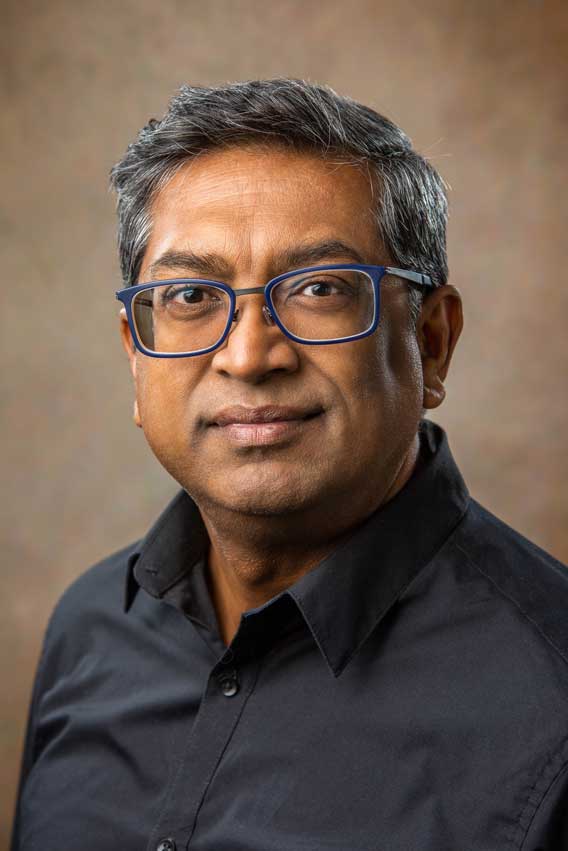
Gary Khan served as pastor of Desert Streams Church of the Open Bible in Santa Clarita, California, for 32 years. He currently serves as the Executive Director of Operations for Marketplace Chaplains in Southern California. He also serves on Open Bible’s National Board of Directors and as district director for the Southern California/Arizona/Hawaii district. Gary is author of the devotionals Greater and Reset as well as his soon-to-be-published book, That Didn’t Go the Way I Thought: Navigating the Ups and Downs of Our Journey of Faith. Gary’s greatest achievement and joy is that of being husband to DeLaine for the past 32 years and father of three amazing kids (two biological and one “adopted”).

In 2017, my husband Dyecol and I were asked to be the interim pastors of Word of Life Open Bible Church in Lehigh Acres, Florida. Little did we know that our two weeks as interim pastors would turn into seven years and counting. After accepting the call to be the permanent pastors, we moved to Lehigh in September, right after Hurricane Ivan had hit. There was no electricity in the city, and it felt like we were moving into darkness and chaos. I didn’t realize we were also moving into the rest of our lives.
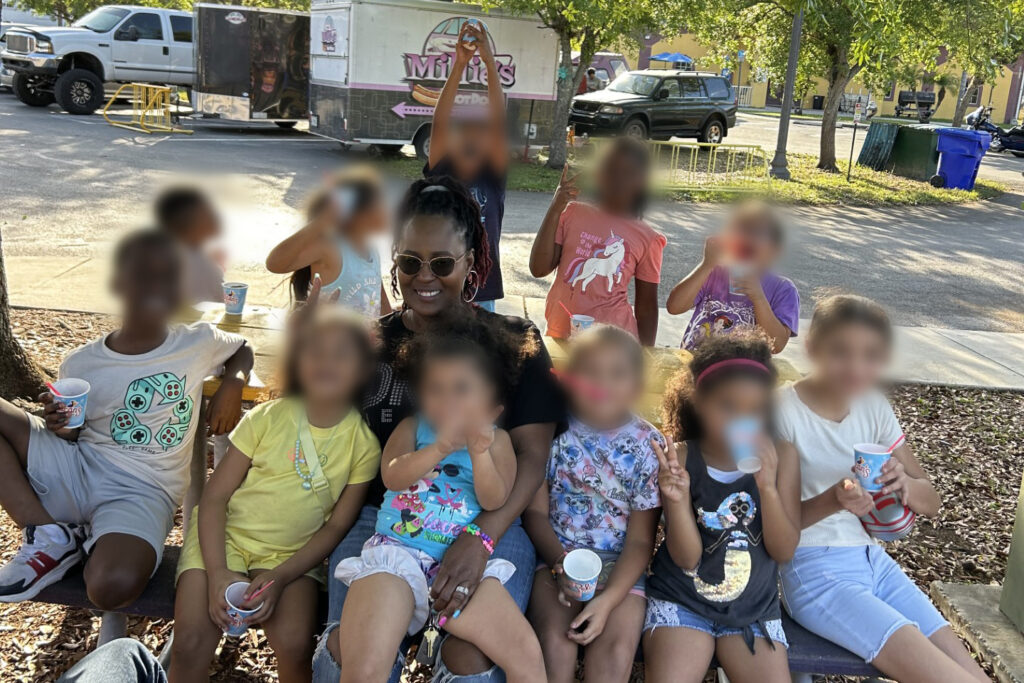
Dyecol and I had never had children together. Shortly after our move to Lehigh, we saw a billboard for an adoption agency. Dyecol went to the agency’s office for more information, and it wasn’t long before we were taking a class on adoption. The instructor of the class emphasized how much greater our chances would be to adopt through fostering, and pretty soon we got our first call to foster a three-year-old girl named Isabella. I will never forget seeing that scared little girl walk through our doorway. I scooped her up in my arms, she laid her head on my shoulder, and my future was sealed.
We’d had Isabella for only a month when we got a call for a second little girl, Maria. Maria’s sister Ruby would join her a few months later, and not long after Ruby, we got a call for a fourth child, our first newborn. This baby was only six days old and had been born addicted to drugs. We were told her parents didn’t want her, and we became excited that this baby might become ours. We attached, weaned her off drugs, and she began to thrive. It was then that her biological father decided that he wanted her. As difficult as this was, it was further complicated by the fact that our hopes of adopting the other girls fell through around the same time. We were shattered. This taste of parenthood had convinced me that I wanted to be a mom again, but fostering was too difficult. I told myself, “Never ever again!” Until I got the next call.
Sometimes God walks you through a process of loss and then He dumps blessing on you when you least expect it.
“Ms. Walker, I have a little girl for you….”
“I don’t know, we’re taking a break.”
“Ms. Walker, I’m telling you, you’re going to want this little girl.”
(Deep Breath.) “Okay.”
Our case worker brought over this ten-year-old little girl with big old grandma glasses, fuzzy hair, and the cutest smile. That little girl walked into our lives, and she has changed us forever. Her name is Anna-Tae Walker, and she became our first adopted daughter. Two months later, we were introduced to our daughter Heavenly. We loved her from the moment we saw her. Sometimes you just know. I said to my husband, “She’s not leaving.” True to my word, Heavenly AND her brother Joshua became ours through adoption.

Sometimes God walks you through a process of loss and then He dumps blessing on you when you least expect it. I didn’t understand why we couldn’t have the first little girls we tried to adopt, but God said no. He knew who our kids were.
Despite my having three adopted children, I continued to take new placements. My first experiences fostering almost broke me, but as I continued to say “yes” to each new child, God reinforced my heart with His strength. Instead of shrinking with each loss, my heart grows bigger as I watch family reunifications. God has gifted me with the capacity to love and to lose.
One night as I was lying on my bed, the Lord gave me a word: “Walker’s House of Hope.” I told my husband, “This is what we’re going to name the house where we raise the children God brings to us.” We started praying, “Lord, if you give us a bigger house we will take more children.” At that time, we had seven children in a three-bedroom house. It wasn’t long before the Lord provided us with a four-bedroom house.
God has gifted me with the capacity to love and to lose.
I got the call almost immediately: “Ms. Walker, we have a sibling group of three.”
“You know I have seven children, right?”
“Yes, Ms. Walker, but you were born for this.”
Immediately the voice of the Lord came to me, reminding me of my prayer. He had given me a bigger house; I was obligated to fulfill my promise. So, we ran out and bought another bunk bed.
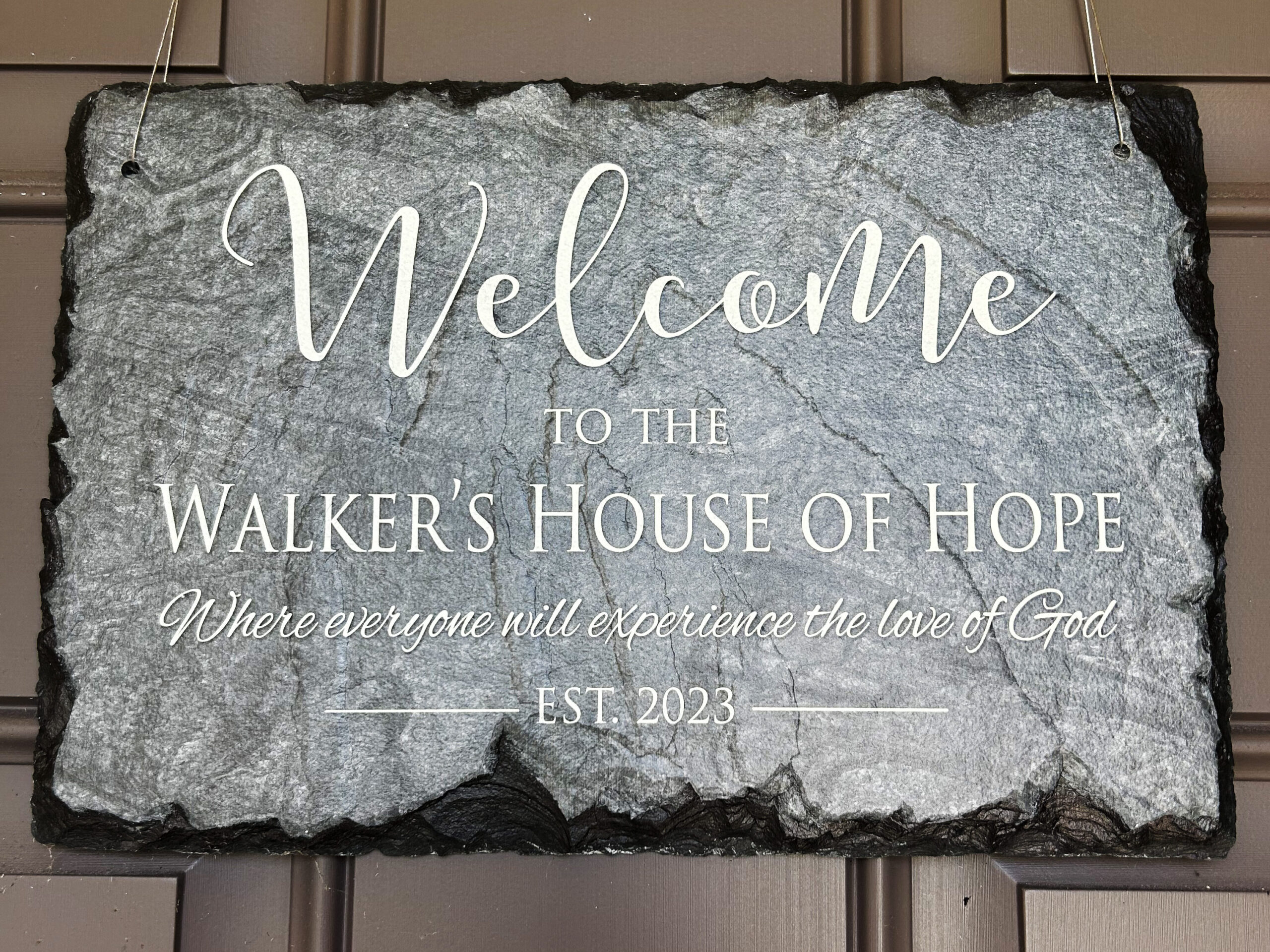
Today, we have ten children: three adopted and seven fostered. Every day after school, I hear ten voices at once, beautiful chaos. Each time I say aloud, “I have ten children,” I can’t believe it – not because it’s too much, but because it feels comfortable. When I dream about the future, I see myself with even more children, running around a big property and coming in to eat dinner around our huge kitchen table. I have found my calling, and I am believing for God to gift us with the house that’s as big as my heart.
I had a sign made that hangs in our current home: “Walker’s House of Hope.” When I look at it, I say to God, “This is not it. But this is it for now.”
Seven years ago, we moved to a city that was in chaos and darkness. Today, we live in a home of chaos and light. And as I look around my busy kitchen table, I have never been more excited about the rest of my life.
About the Author
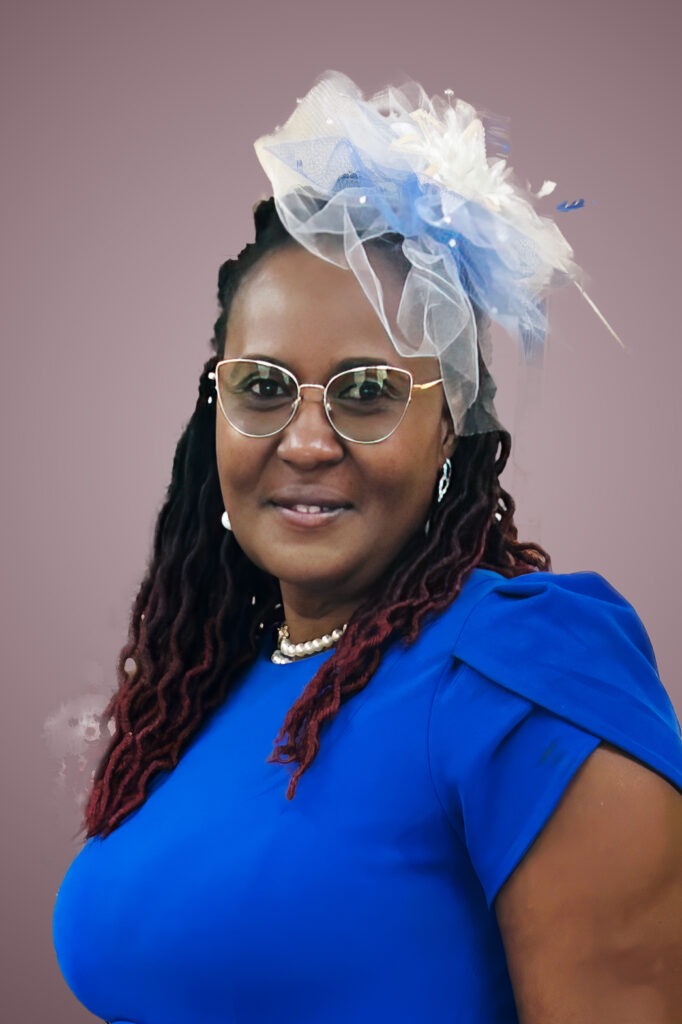
Taneasha Walker
Taneasha Walker is currently co-pastoring Word of Life Open Bible Church in Lehigh Acres, Florida, with her husband Dyecol. She serves on the Southeast Regional Board as an At- Large member. Taneasha has gained experience in every area of ministry, using this knowledge to effectively care for the local church body as well as the children that have been entrusted to her. She is passionate about prayer, utilizing it in every endeavor. In her free time, Taneasha’s hobbies include reading, singing, and traveling.
Featured Articles
A Finely Woven Tapestry: Seventy Years in Trinidad and Tobago
Published
3 months agoon
May 1, 2024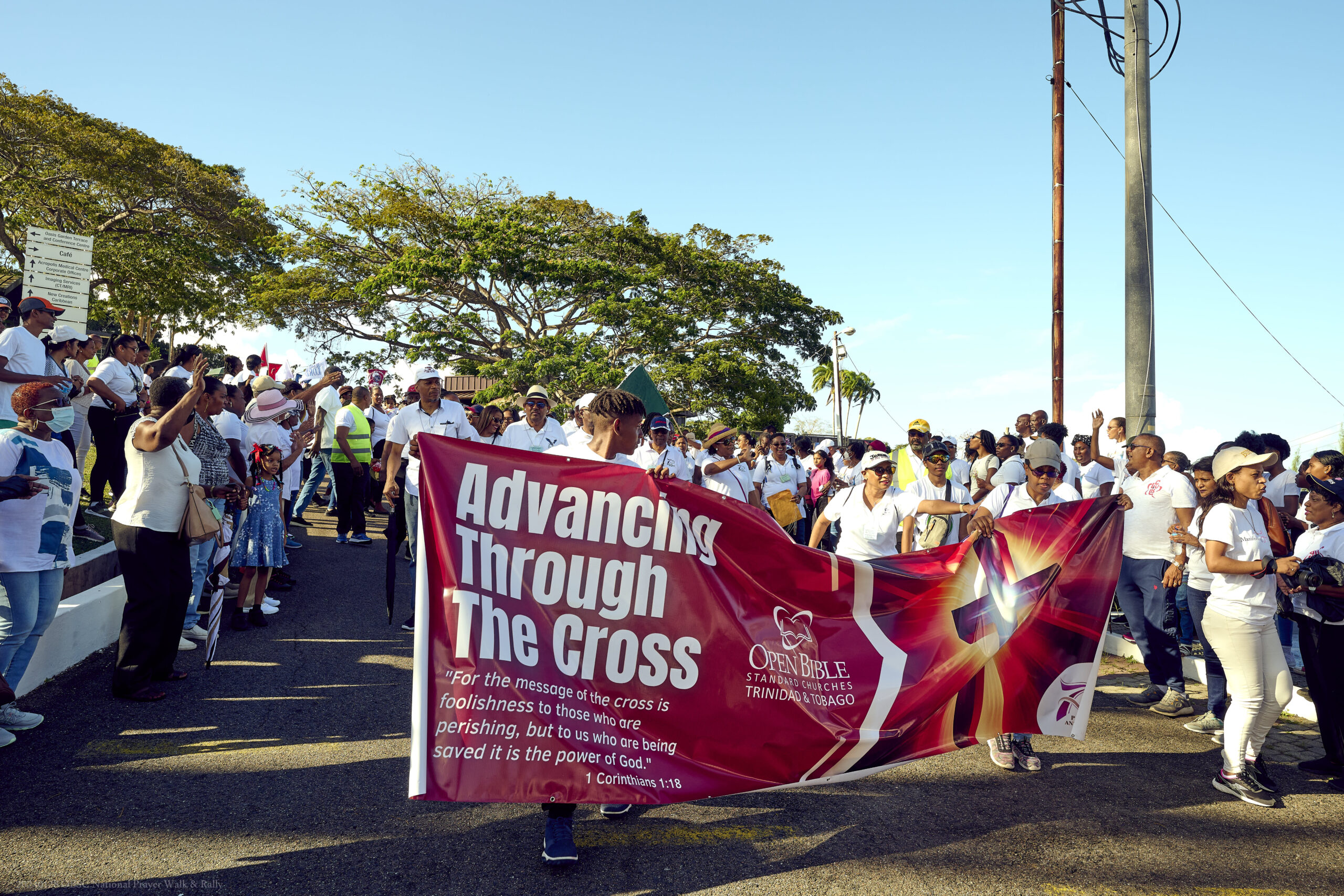
In 2024 Open Bible Standard Churches of Trinidad and Tobago (OBSCTT) commemorates its platinum anniversary: seventy years of faith, strength, and community. Symbolically, Trinidad and Tobago’s Open Bible story unfolds as a finely woven tapestry, blending diverse threads and vibrant and intricate patterns to form a beautiful piece of art. For seven decades, God has woven OBSCTT’s narrative, skillfully blending elements like missionaries, innovative outreach, powerful prayer, unified discipleship, embrace of revival, and the vibrant people of Trinidad and Tobago. Each thread, even if seeming inconsequential, plays a distinctive role in contributing to the magnificent tapestry of their journey.
Situated in the South Caribbean Sea, the Republic of Trinidad and Tobago boasts a rich cultural and religious diversity reflecting African, Indian, European, Chinese, and other influences. Christian, Hindu, Muslim, and indigenous beliefs are all practiced there. Despite Trinidad and Tobago’s small geographical footprint and population of just 1.4 million, Open Bible’s influence has left a significant impact both nationally and globally, contributing to Trinidad and Tobago’s social, civic, and healthcare realms (the founding of the Acropolis Medical Centre being a primary example). OBSCTT boasts nearly one hundred churches, numerous kindergartens, a private high school, INSTE, and a Bible college with three campuses.
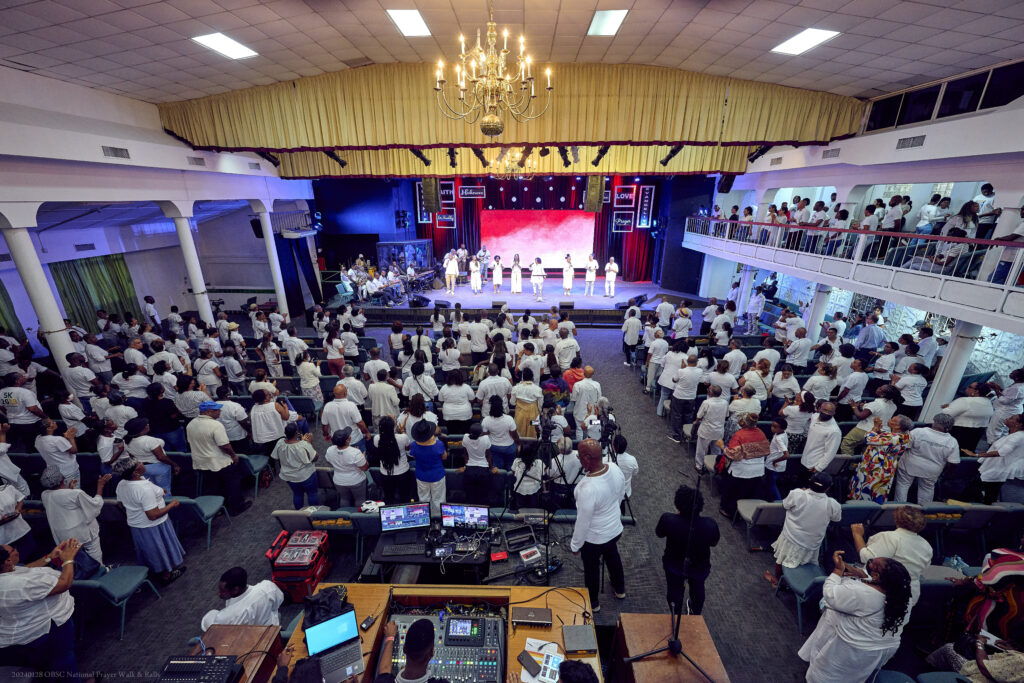
From its beginnings in 1956 under missionaries Kaare and Jean Wilhelmsen, OBSCTT had an emphasis on global outreach. Beginning their outreach in the neighboring country of Grenada in 1971, the churches in Trinidad and Tobago continually expanded their reach, eventually planting churches in South America, North America, Africa, and Europe. Trinidad and Tobago is also the home of Global Missions’ School of Global Leadership (SGL). The founding fathers and mothers of OBSCTT were full of missionary zeal and implanted this passion into the DNA of the churches. Today, it is a vital part of their identity.
From the first missionaries, the Wilhelmsens, to the present-day Lumbard family, thirty-eight Open Bible missionaries have served on the islands. These missionaries laid a robust foundation and equipped capable local leaders. Today, the relationship of local leaders with Open Bible’s Global Missions is a uniquely collaborative partnership. This collaboration and sense of unity was part of the foundation set by the missionaries from the very beginning. Dr. Don Bryan and his wife Ruth were missionaries in the founding days of Open Bible in Trinidad and Tobago (1956-1970). Dr. Bryan spoke of how togetherness was key to Open Bible’s success in Trinidad. Through prayer, the churches and missionaries worked together as a team “so the devil couldn’t divide us.”
Prayer was a unifying and foundational value in the churches. In particular, the Thursday morning Mountain Movers’ prayer meetings at the San Fernando church echoed Acts 19:11: “God did extraordinary miracles…” (NIV). Miracles were the norm, transforming lives as blind eyes were opened and demons cast out. Powerful proclamation of the gospel and God’s evident presence often led to entire families committing their lives to Christ, bringing explosive growth. Seventy years later, the powers of darkness persist but continue to be confronted in prayer services in many churches.

Recognizing the value Trinidadians placed on education, missionaries perceived a Kingdom opportunity and established Open Bible High School (OBHS) in 1967, emphasizing both academics and spiritual development to a student body from diverse faiths. At one time OBHS’s enrollment was the largest in the history of private schools on the island.
Open Bible Institute of Trinidad (OBIT), founded in 1956, continues to train Christian leaders for pastoral, missions, and evangelism ministries. It incorporates theological and uniquely practical training that is an engine for outreach and discipleship. In the early days, student teams went to outlying areas each Thursday to practice the skills they learned in Bible school. There they held outdoor meetings, connected with and discipled Mountain Movers attendees, gathered others and started Sunday schools, and baptized new converts. Their “practice” ministry began birthing new churches, and five of the first six OBSCTT churches were started by the students while still in school!
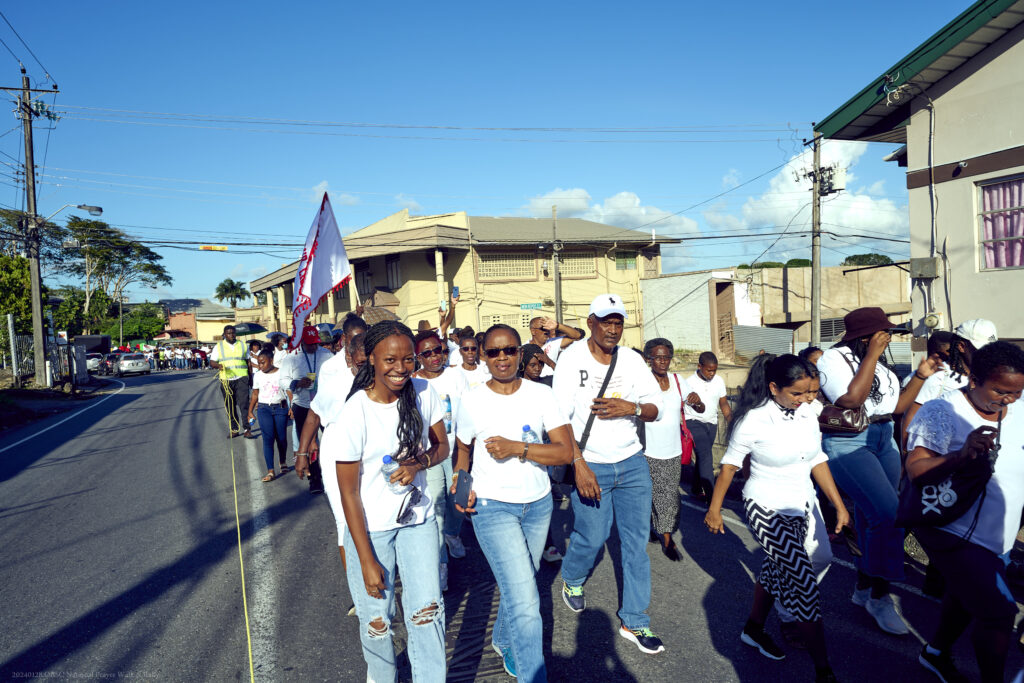
Just as there are many Open Bible missionaries woven into the OBSCTT tapestry, so Trinidad and Tobago is woven into the tapestries of the missionaries themselves, leaving an indelible mark on their lives. It wasn’t just the great food found on the islands that made an impression! More significantly, it was the relationships they formed there that shaped the missionaries. Many of the following missionaries have joined the “great cloud of witnesses,” but others share some of their stories (click HERE to see video interview clips): Kaare and Jean Wilhelmsen, Minnie Bruns, Don and Ruth Bryan, A.E. and Ginny Mitchell, Margaret Crandall, Dora Turner, William and Donna Whitlow, Robert and Wanda Moon, Ed and Betty Wood, Weldon and Rosetta Davis, Melvin and Barbara Kelderman, Tom and Helen Clark, Clayton and Suzanne Crymes, Leona Janzen (Venditti), John and Nadine Simmons, Phil and Priscilla Newell, Dan and Mardell LeLaCheur, Harvey and Alys Klapstein, Grant and Miriam Sickles, and Mike and Pamela Lumbard.
Symbolically, Trinidad and Tobago’s Open Bible story unfolds as a finely woven tapestry, blending diverse threads and vibrant and intricate patterns to form a beautiful piece of art.
The most vibrant and prominent threads in the tapestry God is weaving for Open Bible Standard Churches of Trinidad and Tobago are the nationals themselves. The 2 Timothy 2:2 principle of entrusting the work to others who will pass it on to others has been a key to continued growth and expansion. The names are too many to share, but here are just a few of the local ministers who have led with distinction over the years: Revs. Dr. Benjamin Agard, Charles and Charmaine Alexis, Keith Armoogan, Desmond Austin, Carlyle Chankersingh, Munroe Cox, Vicram Hajaree, Leroy Haynes, Dr. Andy and Ann Marie Homer, Benjamin Hunte, Calbert Mark, Romaish Mohan, Raule Reid, Cecil and Debbie Quamina, Errol Ramdass, Fitzroy Griffith, Jr., and Junior Yuille.
Rev. Dr. Benjamin Agard, National Elder-Director of OBSCTT, credits the preaching of the gospel of Christ and Him crucified – from the earliest of days until now – as a key to numerical and spiritual growth throughout OBSCTT’s history. The focus on the cross remains central to their identity. Minister Ann Marie Homer summed it up this way: “Just the fact that you can walk into any Open Bible church on a Sunday morning and hear the gospel of Jesus Christ being preached in truth is a major accomplishment. We have not shifted.”
Seventy years later, in this celebration of their platinum jubilee, we join with Open Bible Standard Churches of Trinidad and Tobago to look back at the tapestry God has woven through them and to celebrate His good work. Today, OBSCTT’s story reaches not only the islands of Trinidad and Tobago but extends to the uttermost parts of the world. As it says in Psalm 2:8, “Ask me, and I will make the nations your inheritance, the ends of the earth your possession” (NIV). Such an incredible inheritance and a rich legacy – we can only imagine what God will do next!
About the Author
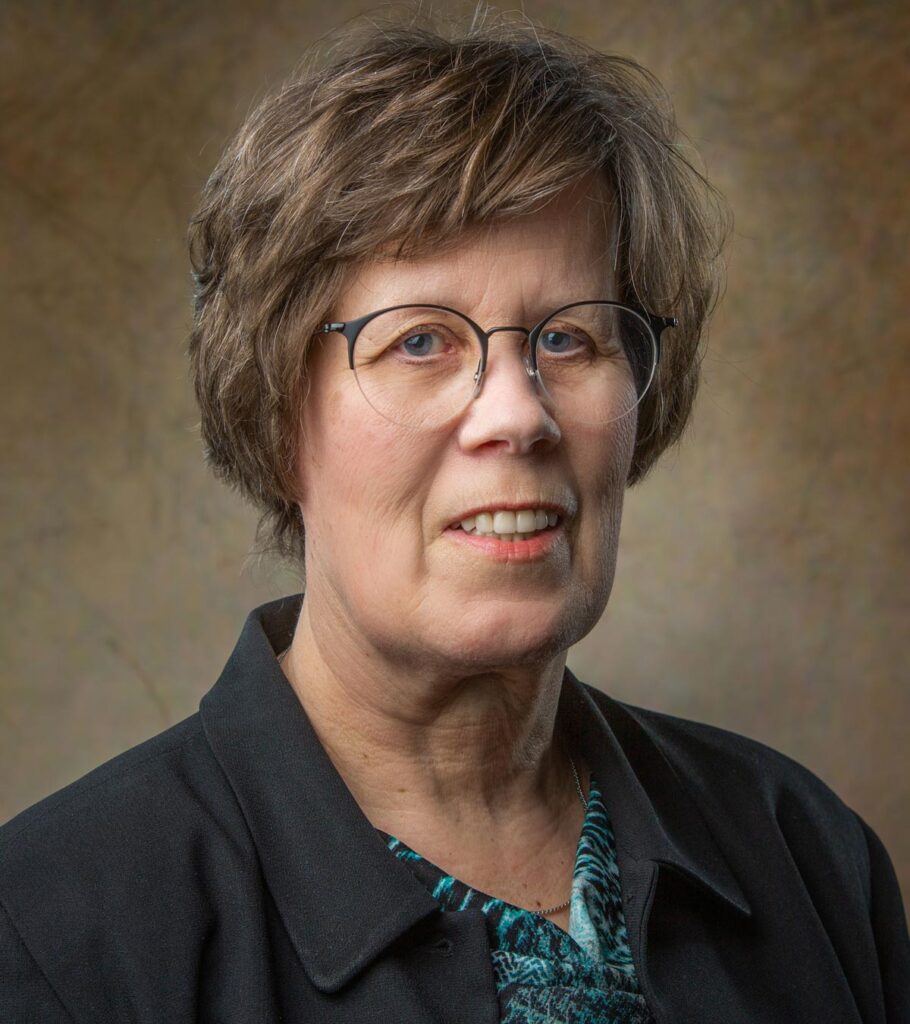
Tammy Swailes
Tammy Swailes is passionate about cross-cultural Christian education, so working with INSTE Global Bible College to disciple and equip leaders throughout Europe and beyond is a great fit! Tammy has lived in Europe since 1999 – first in Hungary and now Ukraine. Before that, she was in Japan, as well as Spokane, Washington. She now serves as INSTE regional director in Europe, assisting INSTE programs in five languages. Tammy has her undergraduate degrees in both Missions and Christian Education, and a MA in Intercultural Studies. Photography, good coffee, multi-cultural experiences, and the family’s Yorkie are some of Tammy’s favorite things.
Featured Articles
UN TAPIZ FINAMENTE TEJIDO: La Biblia Abierta de Trinidad y Tobago celebra setenta años de ministerio
Published
3 months agoon
May 1, 2024
Las Iglesias Estándar de la Biblia Abierta de Trinidad y Tobago (OBSCTT, por sus siglas en inglés) conmemoran en 2024 su aniversario de platino: Setenta años de fe, fortaleza y comunidad. La historia de la Biblia Abierta de Trinidad y Tobago se desarrolla simbólicamente como un tapiz finamente tejido, en el que se mezclan diversos hilos y patrones vibrantes y complejos para formar una hermosa obra de arte. Durante siete décadas, Dios ha tejido la historia de OBSCTT, mezclando hábilmente elementos como los misioneros, el alcance innovador, la oración poderosa, un discipulado unificado, la acogida del avivamiento y el pueblo vibrante de Trinidad y Tobago. Cada hilo, aunque parezca insignificante, desempeña un papel distintivo que contribuye al magnífico tapiz de su trayectoria.
La República de Trinidad y Tobago, ubicada en el Mar Caribe Sur, cuenta con una rica diversidad cultural y religiosa que refleja influencias africanas, indias, europeas, chinas y de otros lugares. Allí se practican creencias cristianas, hindúes, musulmanas e indígenas. A pesar de la pequeña extensión geográfica de Trinidad y Tobago y de su población de tan sólo un millón cuatrocientos mil habitantes, la influencia de la Biblia Abierta ha dejado un impacto significativo tanto a nivel nacional como mundial, al contribuir a los ámbitos social, cívico y al de la asistencia médica de Trinidad y Tobago (un ejemplo fundamental es la fundación del Centro Médico Acrópolis). La OBSCTT cuenta con casi cien iglesias, numerosas guarderías, un colegio secundario privado, INSTE, y un instituto bíblico con tres sedes.

Desde sus inicios en 1956, bajo la dirección de los misioneros Kaare y Jean Wilhelmsen, la OBSCTT hizo hincapié en el alcance global. Las iglesias de Trinidad y Tobago, que comenzaron su labor en el país vecino de Granada en 1971, fueron expandiendo su alcance en forma contínua hasta llegar a plantar iglesias en Sudamérica, Norteamérica, África y Europa. Trinidad y Tobago es también la sede de la Escuela de Liderazgo Global (SGL) de Misiones Globales. Los fundadores de la OBSCTT estaban llenos de celo misionero e implantaron esta pasión en el ADN de las iglesias. Hoy en día, es una parte vital de su identidad.
Desde la familia Wilhelmsen, los primeros misioneros, hasta la actual familia Lumbard, treinta y ocho misioneros de la Biblia Abierta han servido en las islas. Estos misioneros fundaron una base sólida y equiparon a líderes locales competentes. Hoy en día, la relación entre los líderes locales con las Misiones Globales de la Biblia Abierta es una asociación de colaboración única. Esta colaboración y sentido de unidad fue parte de los cimientos establecidos por los misioneros desde el principio. El Dr. Don Bryan y su esposa Ruth fueron misioneros en la época en que se fundó La Biblia Abierta en Trinidad y Tobago (1956-1970). El Dr. Bryan habló de cómo la unidad fue clave para el éxito de la Biblia Abierta en Trinidad. A través de la oración, las iglesias y los misioneros trabajaron juntos como un equipo «para que el diablo no pudiera dividirnos».
La oración fue el valor unificador y cimentador de las iglesias. En especial, en la iglesia de San Fernando las reuniones de oración de los Movedores de Montañas de los jueves por la mañana hacían resonar las palabras de Hechos 19:11: «Dios hacía milagros extraordinarios…». (NVI). Los milagros fueron la norma, transformaron vidas al abrir los ojos de los ciegos y expulsar demonios. La poderosa proclamación del Evangelio y la evidente presencia de Dios llevaron a menudo a familias enteras a entregar sus vidas a Cristo, lo que trajo consigo un crecimiento explosivo. Setenta años después, los poderes de las tinieblas persisten, pero siguen siendo confrontados en los servicios de oración de muchas iglesias.

Los misioneros, reconociendo el valor que los trinitenses atribuían a la educación, vieron una oportunidad para el Reino y crearon en 1967 la Escuela Secundaria de la Biblia Abierta (OBHS, por sus siglas en inglés), que hacía hincapié en el desarrollo académico y espiritual de un alumnado de diversas religiones. Llegó un momento en que la matrícula de la OBHS era la mayor de la historia de las escuelas privadas de la isla.
El Seminario de la Biblia Abierta de Trinidad (OBIT, por sus siglas en inglés), fundado en 1956, sigue formando a líderes cristianos para ministerios pastorales, misioneros y de evangelización. El seminario incorpora una formación teológica y práctica única que constituye un motor para la evangelización y el discipulado. En sus inicios, los equipos de estudiantes se desplazaban cada jueves a las zonas periféricas para poner en práctica lo aprendido en la escuela bíblica. Allí celebraron reuniones al aire libre, se pusieron en contacto e instruyeron a los asistentes de los Movedores de Montañas, reunieron a otros e iniciaron escuelas dominicales, y bautizaron a nuevos creyentes. Su «práctica» del ministerio comenzó a dar a luz nuevas iglesias, ¡y cinco de las primeras seis iglesias de la OBSCTT fueron fundadas por los propios estudiantes mientras aún estaban en la escuela!

Al igual que hay muchos misioneros de la Biblia Abierta entretejidos en el tapiz de la OBSCTT, así Trinidad y Tobago está entretejida en los tapices de los propios misioneros, dejando una huella indeleble en sus vidas. No fue sólo la magnífica comida de las islas lo que les impresionó. Más importante aún, fueron las relaciones que entablaron allí las que dieron forma a los misioneros. Si bien muchos de los siguientes misioneros se han unido a la «gran nube de testigos», otros nos cuentan algunas de sus historias (haga clic en los enlaces para ver los vídeos de las entrevistas): Kaare y Jean Wilhelmsen, Minnie Bruns, Don y Ruth Bryan, A.E. y Ginny Mitchell, Margaret Crandall, Dora Turner, William y Donna Whitlow, Robert y Wanda Moon, Ed y Betty Wood, Weldon y Rosetta Davis, Melvin y Barbara Kelderman, Tom y Helen Clark, Clayton y Suzanne Crymes, Leona Janzen (Venditti), John y Nadine Simmons, Phil y Priscilla Newell, Dan y Mardell LeLaCheur, Harvey y Alys Klapstein, Grant y Miriam Sickles, y Mike y Pamela Lumbard.
La historia de la Biblia Abierta de Trinidad y Tobago se desarrolla simbólicamente como un tapiz finamente tejido, en el que se mezclan diversos hilos y patrones vibrantes y complejos para formar una hermosa obra de arte.
Los hilos más vibrantes y prominentes en el tapiz que Dios está tejiendo en las Iglesias de la Biblia Abierta de Trinidad y Tobago son los propios nacionales. El principio de 2 Timoteo 2:2 de encargar la obra a personas idóneas que la transmitirán a otros ha sido clave para el crecimiento y la expansión continuos. Son demasiados nombres para mencionarlos a todos, pero he aquí sólo algunos de los ministros locales que han dirigido con distinción a lo largo de los años: Reverendos Dr. Benjamín Agard, Charles y Charmaine Alexis, Keith Armoogan, Desmond Austin, Carlyle Chankersingh, Munroe Cox, Vicram Hajaree, Leroy Haynes, Dr. Andy y Ann Marie Homer, Benjamín Hunte, Calbert Mark, Romaish Mohan, Raule Reid, Cecil y Debbie Quamina, Errol Ramdass, Fitzroy Griffith, Jr. y Junior Yuille.
El Rev. Dr. Benjamín Agard, Anciano-director nacional de la OBSCTT, da merito a la predicación, desde los primeros días hasta ahora, del evangelio de Cristo y de este crucificado, como la clave del crecimiento numérico y espiritual a lo largo de la historia de la OBSCTT. El enfoque del mensaje de la cruz sigue siendo fundamental para su identidad. La ministra Ann Marie Homer lo resumió así: «El solo hecho de que usted pueda entrar en cualquier iglesia de la Biblia Abierta un domingo por la mañana y escuchar el verdadero evangelio de Jesucristo predicado, constituye un gran logro. No nos hemos desviado».
Setenta años después, en esta celebración de su jubileo de platino, nos unimos a las Iglesias Estándar de la Biblia Abierta de Trinidad y Tobago para mirar hacia atrás, al tapiz que Dios ha tejido a través de ellos y celebrar Su buena obra. Hoy, la historia de la OBSCTT no sólo llega a las islas de Trinidad y Tobago, sino que se extiende hasta los confines de la tierra. Como dice el Salmo 2:8: «Pídeme, y te daré por herencia las naciones, y como posesión tuya los confines de la tierra.» (RVR-60). Qué herencia tan increíble y qué legado tan rico: ¡sólo podemos imaginar lo que Dios hará a continuación!
Sobre la autora

Tammy Swailes
¡Tammy Swailes es una apasionada de la educación cristiana multicultural, por lo que trabajar con el Seminario Bíblico Global INSTE para discipular y equipar a los líderes en toda Europa y más allá encaja a la perfección! Tammy ha vivido en Europa desde 1999 (primero en Hungría y ahora en Ucrania). Antes de eso, vivió en Japón, así como en Spokane, Washington. En la actualidad se desempeña como directora regional de INSTE en Europa, colaborando con los programas de INSTE en cinco idiomas. Tammy tiene una licenciatura en Misiones y otra en Educación Cristiana, y una maestría en Estudios Interculturales. Algunas de las cosas que más le gustan a Tammy son la fotografía, el buen café, las experiencias multiculturales y el perrito Yorkie de la familia.
Follow Us
Subscribe to the Message







